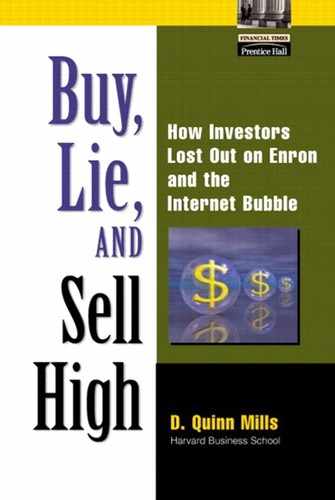Talking Points
The venture firms were joined by investment banks in changing their own rules about when to take a company public in order to take advantage of a developing public mania for Internet investments. Because so many dot-coms had no profits, the banks shifted their valuation rules to formulas based on sales. And since there were no profits, the time constraints on when to take a company public based on profits were no longer in effect. All this suggests that not only were the venture firms and banks in a hurry, but that they suspected or knew that many of the companies going public were unlikely to be viable entities. In addition, there was significant underpricing of IPOs, possibly due to disputes within the banks about how to price these nonprofitable companies, resulting in very large leaps in the price of the shares the moment they hit the street, and providing a valuable commodity for investment bankers to allocate—namely, shares in start-ups.
| Traditional Rule for IPOs | Rule during the bubble |
|---|---|
| Three quarters of profitability | Possibility of sales in the future |
